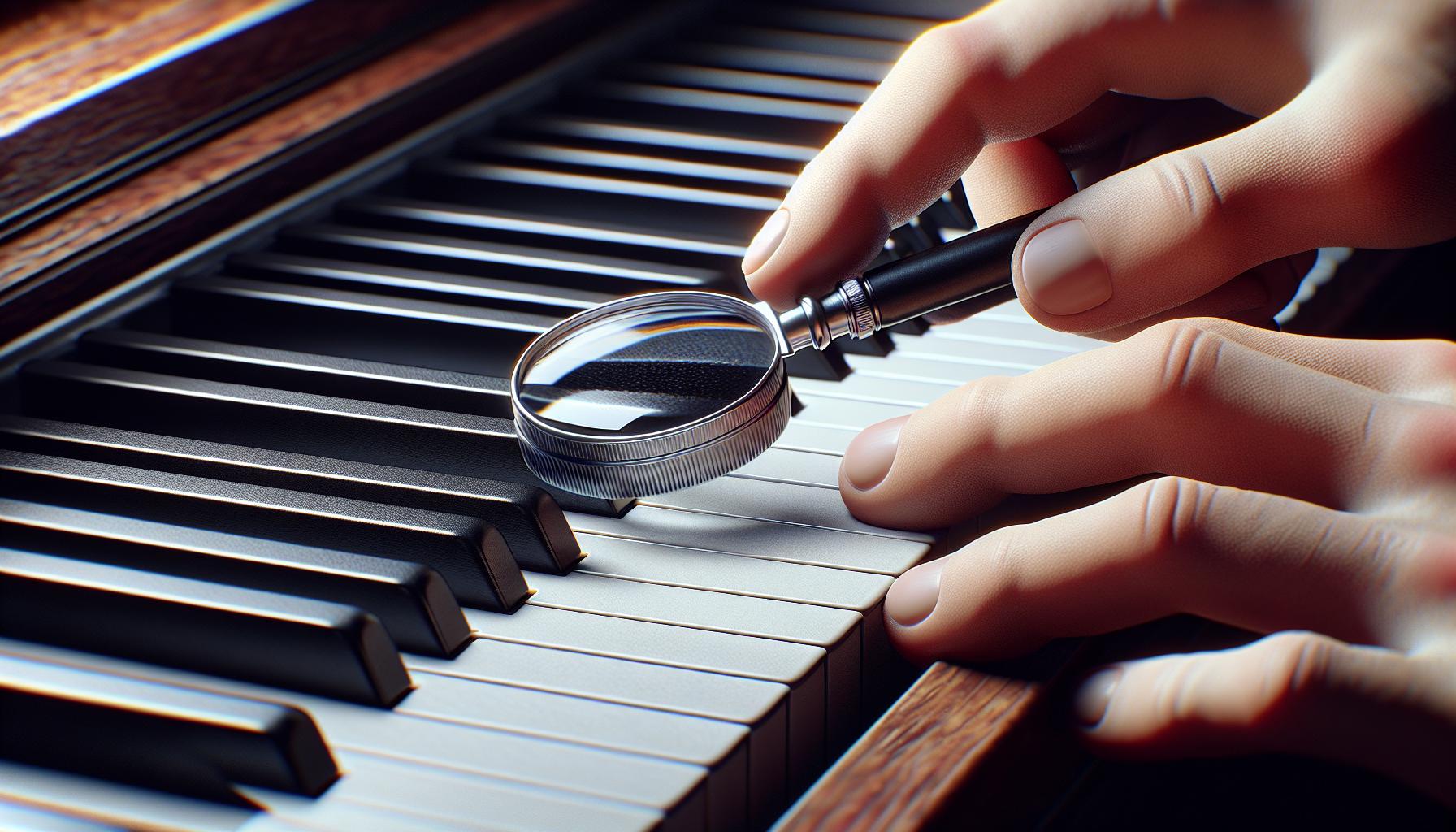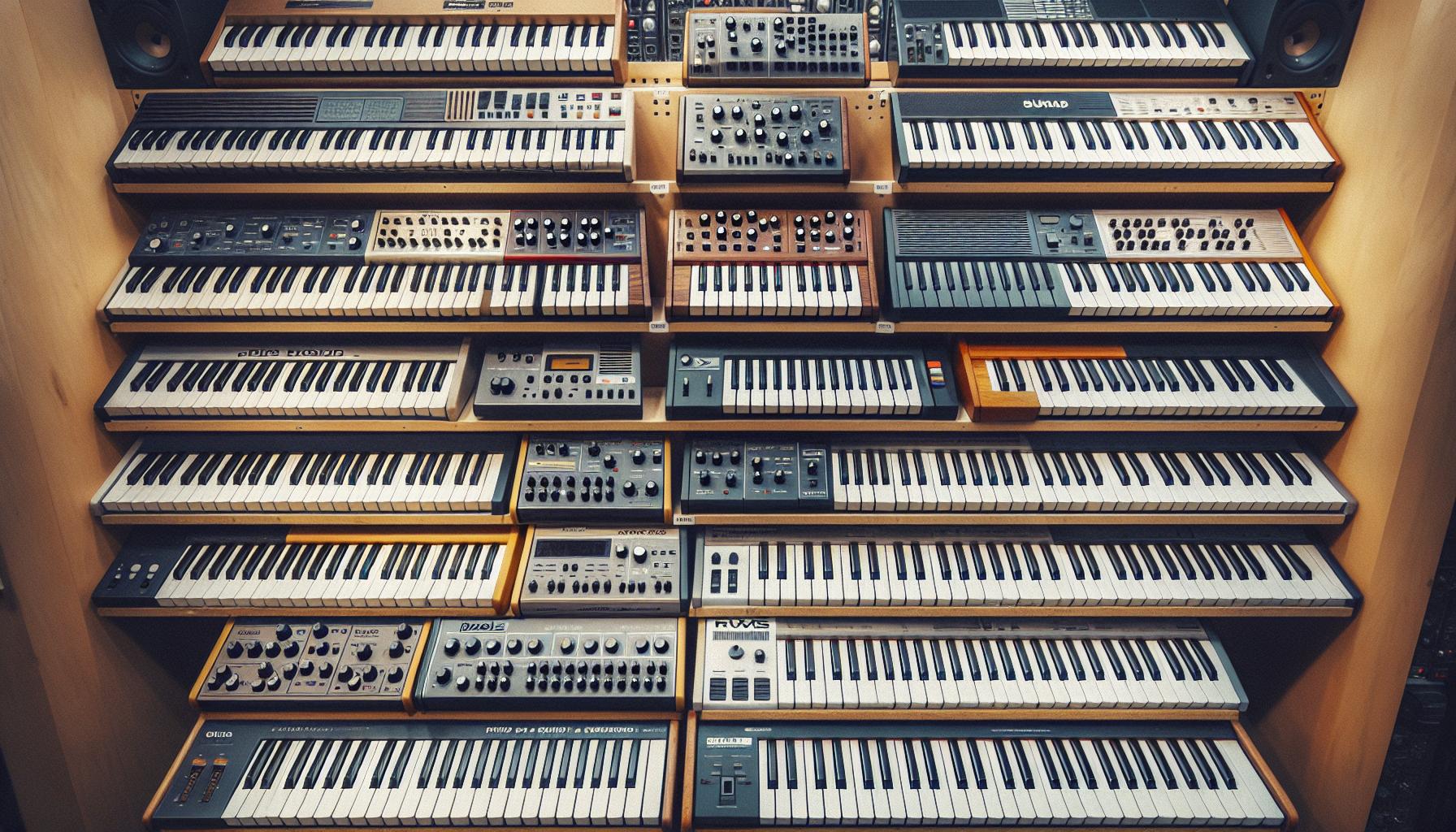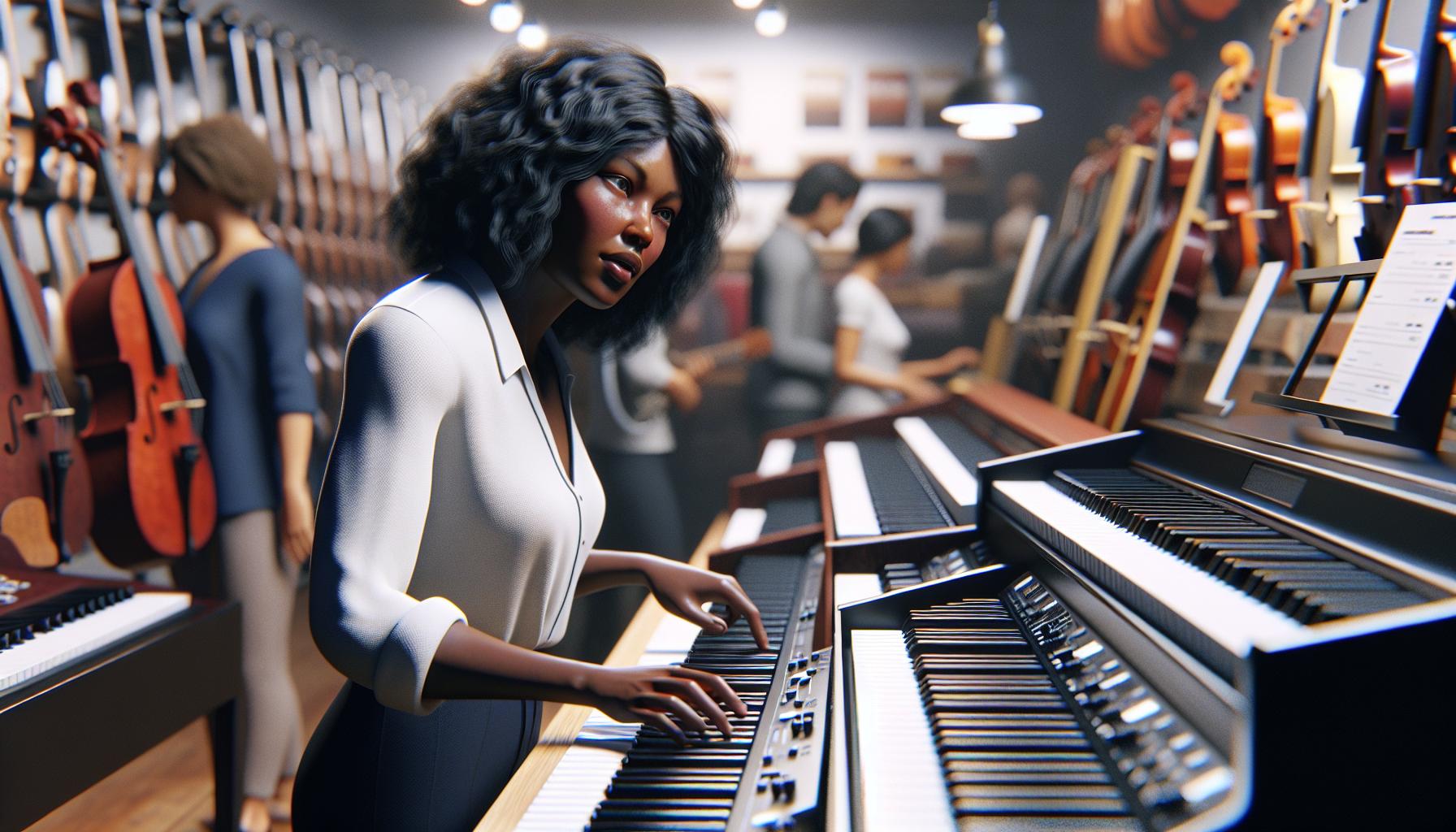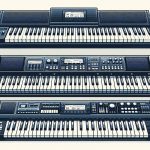Buying a second-hand piano keyboard can be a great way to save some money. But it's not as simple as just picking one that looks good. There are a few things you'll need to keep in mind to ensure you're getting a quality instrument.
First off, you'll want to consider the age and condition of the keyboard. Older models might have a charming vintage vibe, but they may also need more maintenance. And while a few scratches and dings won't affect the sound, serious damage could be a sign of neglect.
You'll also need to think about the brand and model. Some brands are known for their durability and excellent sound, while others might not hold up as well over time. Researching and understanding the different options can help you make an informed decision.
Factors to consider when buying a second-hand piano keyboard
When it comes to buying a second-hand piano keyboard, age and condition often take the spotlight. It's easy to understand why. An older model might charm buyers with its classic aesthetic, but these keyboards often need more care and maintenance. It's essential to scrutinize the keyboard's condition before finalizing the purchase. Detecting issues like persistent sticking keys or strangely tuned notes, which could be signs of underlying problems, is crucial.
Knowledge of brands and models often parallels the importance of age and condition. Some brands hold their quality better over time, while others might deteriorate more rapidly. The different piano brands often come with their various attributes and characteristics which often mirror in their produced models. Hence, understanding the nature of the brand and its models can aid potential buyers greatly. Gleaning details from online reviews, piano forums, or even pulling tips from local music stores can be key steps in gaining a broad understanding of the piano market landscape.
A table showcasing a general classification of piano keyboards by brand reputation might look something like this:
| Brand Reputation | Brands |
|---|---|
| High | Steinway & Sons, Kawai |
| Medium | Yamaha, Casio |
| Low | Alesis, Behringer |
While knowing about brands and conditions is useful, buyers must consider another important factor: the skill level. The requirement in a piano keyboard for a rookie embarking on the journey of music is starkly different from a classical pianist with years of practice. Buyers should reflect on the user's skill level when deciding.
Browsing through second-hand goods is always an adventure; unexpected treasures and occasional pitfalls are in the equation. Therefore, inspecting the keyboard thoroughly and understanding the world of pianos is a must. As the journey unfurls, seasoned musicians and beginners alike might find themselves swaying to the rhythm of their perfect keyboard. Knowledge of brands, understanding of varying conditions, and due consideration of the user's skill level are the solid notes to this melody.
Evaluating the age and condition of the keyboard

One critical factor when buying a second-hand piano keyboard is evaluating the instrument's age and general condition. It’s worth mentioning again that the condition of a second-hand keyboard can dramatically impact its performance and longevity. So, let’s delve into this point further, shall we?
Age isn’t just a number when it comes to piano keyboards. Much like a fine wine, some keyboards can improve with age, while others may deteriorate. It's important to know the age of the keyboard as it can provide clues about potential wear and tear or underlying issues that aren't immediately visible.
Depending on how well it's been maintained, an older keyboard might have a rich and warm sound that younger keyboards haven’t developed yet. On the flip side, a neglected older keyboard may carry unseen complications such as internal rusting or dust accumulation, which may affect its sound quality and require costly repairs.
Another tip: Inspect the keyboard's physical condition. Look out for noticeable defects such as cracks or chipped keys, as these can affect the keyboard operation and overall sound production. It’s also a good idea to play a few notes across the entire keyboard to ensure there are no sticking keys or strangely tuned notes.
Being thorough during your evaluation would definitely pay off. A keyboard that has been well cared for, regardless of its age, is likely to provide a much better experience compared to a newer keyboard that's been neglected.
Remember, purchasing a second-hand keyboard is similar to buying a used car. It's not just about finding a good deal. It's about smart investing, understanding why age and condition matter, and ultimately finding the best fit for you.
Next, the article explores the importance of professional assessment and advice when purchasing a second-hand keyboard. After all, there are nuances and technicalities a layperson might miss, so stay tuned.
Understanding the importance of the brand and model

When shopping for a second-hand piano keyboard, it's essential to understand the role that the brand and model can play. Brand reputation plays a big part, as some keyboard manufacturers are known for their quality, longevity, and sound.
Popular and well-established manufacturers usually ensure that their products are built to standard and made of quality materials. This tends to hold up over time, even for used models. For instance, brands like Yamaha, Roland, and Casio have solid reputations in the music industry for delivering high-caliber keyboards that produce excellent sounds.
However, don't let brand names overshadow the importance of inspecting each second-hand keyboard on its own merits. While a strong brand reputation can provide a sense of assurance, every used keyboard has its unique history of use and care.
Moving onto model considerations, it's just as important to research the piano keyboard's model as it is to look into the brand. Various models within a brand can have drastically different features, sounds, and build quality. For instance, some models are better suited for beginners, while others are designed with professional use in mind.
Moreover, the age of the model should be a key consideration. The older the model, the more likely it is to have worn components and outdated technology. Conversely, more recent models may feature upgraded technology and design.
Here are some key points to reflect on when considering the brand and model of a used keyboard:
- Brand reputation for quality and durability
- Individual history of the keyboard despite the brand reputation
- The specific model and its features
- The year the model was released
A second-hand piano keyboard can be an excellent investment with the proper research and considerations. Remember—it's a combination of the keyboard's brand, model, and individual condition that'll likely dictate its performance and lifespan. Therefore, don't shy away from asking relevant questions or seeking professional advice to ensure the right choice.
Researching different options before making a decision

Purchasing a second-hand piano keyboard isn't a decision to rush. It's critical to explore all possible options. Researching different brands, models, and prices will offer a wider perspective, making it easier to find what you're looking for. Don't limit yourself to one brand or model. Be open to different possibilities; you never know what gem you could uncover!
Having a clear understanding of your needs and preferences will help refine the search. Are you a beginner looking for a basic keyboard? Or a seasoned musician in need of advanced features? Once you define your needs, narrow down your options. It's essential to consider the age of the keyboard, as it directly impacts its condition and the technology used in its construction.
Remember, buying from a trusted source is of utmost importance. Do not neglect this aspect during your research. Trusted sources may be a reputable music store, a professional musician selling their gear, or even a trusted online marketplace. Verify the seller's reputation or credibility before making any commitments. A reliable source should provide enough information about the keyboard, support proof of ownership, and allow for inspection before purchase.
Show interest in the keyboard's history. Therefore, ask about how often it's been used, whether it's been professionally serviced, and if it's ever been repaired. The more insight you can get, the safer your buying decision will be.
To aid your research process, consider reaching out to keyboardist communities or forums online. There's an enormous wealth of knowledge within these communities from people who've been in your shoes before. They can offer advice, share their experiences, answer your concerns. This can vastly expand your knowledge about the specifics of what to lookout for when purchasing a second-hand keyboard. But remember, while these insights can guide your decision, the final call is entirely up to you.
Having explored the tips on research and considerations, let's delve into what to expect when inspecting a second-hand keyboard.
Conclusion
So there you have it! Buying a second-hand piano keyboard isn't as daunting as it might seem. It's all about doing your homework, knowing what you want, and not being afraid to ask questions. Remember, it's not just about the price tag; it's about finding a keyboard that suits your needs and will stand the test of time. Trust your gut, rely on your research, and connect with fellow keyboard enthusiasts. With patience and persistence, you'll find the perfect second-hand piano keyboard that hits all the right notes. Happy playing!
Harlan Kilstein began playing piano during covid with no piano background at all. He taught himself how to play learning what to do and what not to do.
Today he's an advanced intermediate player and can help you grow in your skills because he learned all this on his own.








